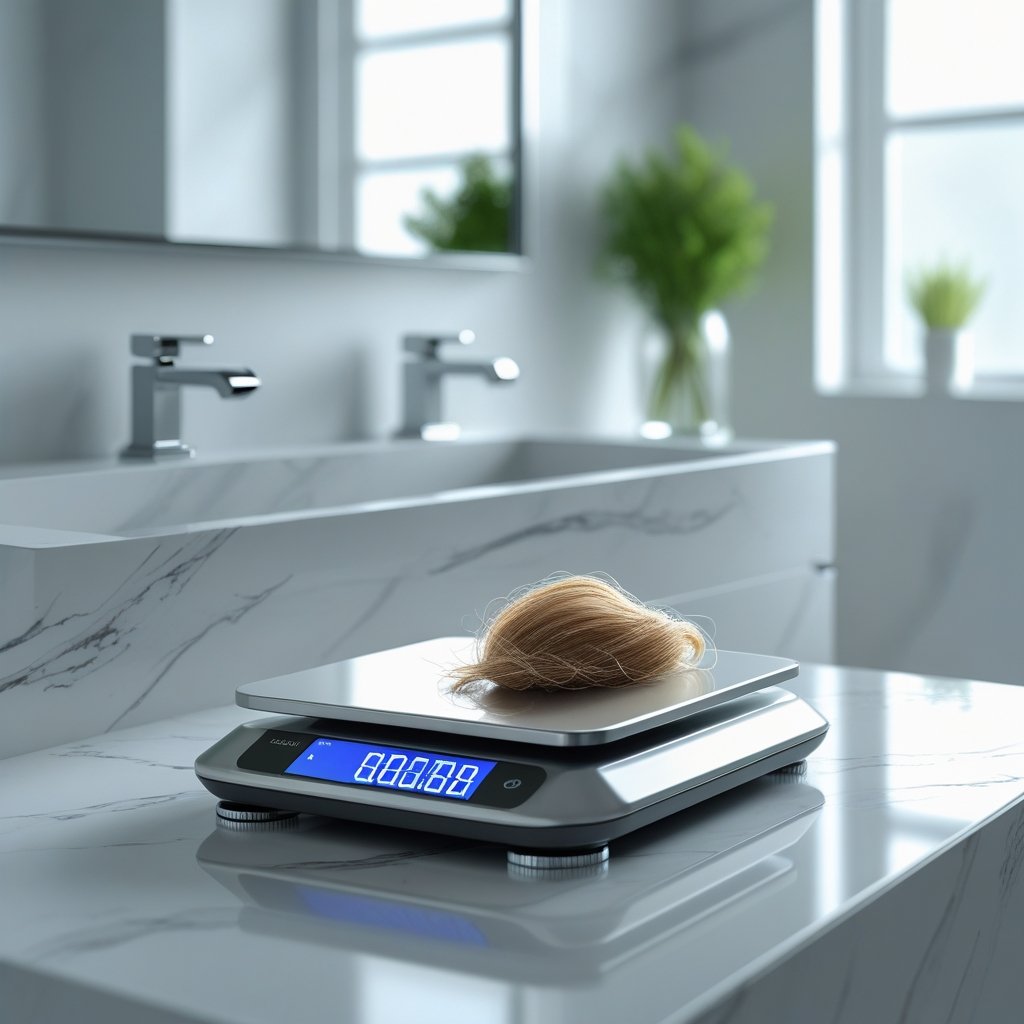The average head of hair weighs about 2–5 ounces (50–150 grams) when dry—and up to 30% more when wet. This means your hair can feel noticeably heavier after a shower, especially if it’s long or thick. Understanding how much your hair weighs helps with everything from accurate scale readings to choosing the right hair products and routines. Let’s break down the facts and answer all your questions about dry vs. wet hair weight.

How Much Does Dry Hair Weigh?
Understanding the Weight of Dry Hair
- A single strand of hair weighs very little—about 0.0004–0.0006 grams (0.000013–0.000021 ounces) per inch (Healthline, 2022).
- The average person has 80,000–120,000 hair strands on their head.
- For most people, a full head of dry hair weighs 2–5 ounces (50–150 grams).
- If your hair is long (e.g., 6 inches or more), your total hair weight might reach 6–13 ounces (170–370 grams).
Why does this matter? Even though hair is light, it can add up—especially for those with longer, thicker hair. For most people, hair weight is a tiny fraction of your total body weight, but it can still make a difference on the scale.
How Much Does Wet Hair Weigh?
Wet Hair: Why It Feels So Heavy
- Hair absorbs water—up to 30% of its dry weight (Endaring Hair, 2024).
- Wet hair also traps surface moisture between strands, which can add to the feeling of heaviness.
- Example: Someone with thick, shoulder-length hair can see the scale increase by up to 1.8 lbs (820 grams) immediately after washing—but this includes water clinging to hair and skin, not just the hair itself (Reddit, 2024).
| Hair Condition | Typical Weight |
|---|---|
| Dry (short to medium) | 2–5 oz (50–150 g) |
| Dry (long) | 6–13 oz (170–370 g) |
| Wet (all lengths) | Up to 30% heavier, sometimes more* |
*Depends on length, thickness, and amount of trapped water.
Why Is There a Difference in Hair Weight When Wet?
- Water absorption: Hair’s natural structure soaks up water, increasing its mass.
- Surface moisture: Water that clings to hair (and scalp) after washing can significantly boost overall weight.
- Long or thick hair: More surface area = more water retention.
Practical tip: To get a more accurate weight reading, always weigh yourself with dry hair. If you weigh yourself right after a shower, your hair (and body) will retain extra water, which can skew your results.
Common Questions About Hair Weight
Does hair length or type affect weight?
- Yes. The longer and thicker your hair, the more it weighs—especially when wet.
- Fine, thin hair will absorb less water and add less weight than coarse, curly, or thick hair.
Will cutting my hair change my body weight?
- Not by much. Even a major haircut usually changes your weight by only a few ounces—barely noticeable on most household scales.
Can hair weight impact health or fitness tracking?
- Slightly. For those tracking weight loss/gain very closely, consistently weighing yourself with dry hair can help ensure more accurate, repeatable results.
Real-World Example
“After showering, I always notice my long hair makes my towel much heavier and takes ages to dry. Turns out, my hair is carrying up to a cup of extra water!”
Conclusion
In summary:
Dry hair weighs only a few ounces, but wet hair can be up to 30% heavier due to water absorption and trapped moisture.
For accurate weight tracking, style decisions, or just to satisfy your curiosity, now you know exactly how much your hair really weighs!
Ready to learn more about hair care, styling, and health? Explore our latest guides and subscribe for more science-backed answers to your everyday questions.
